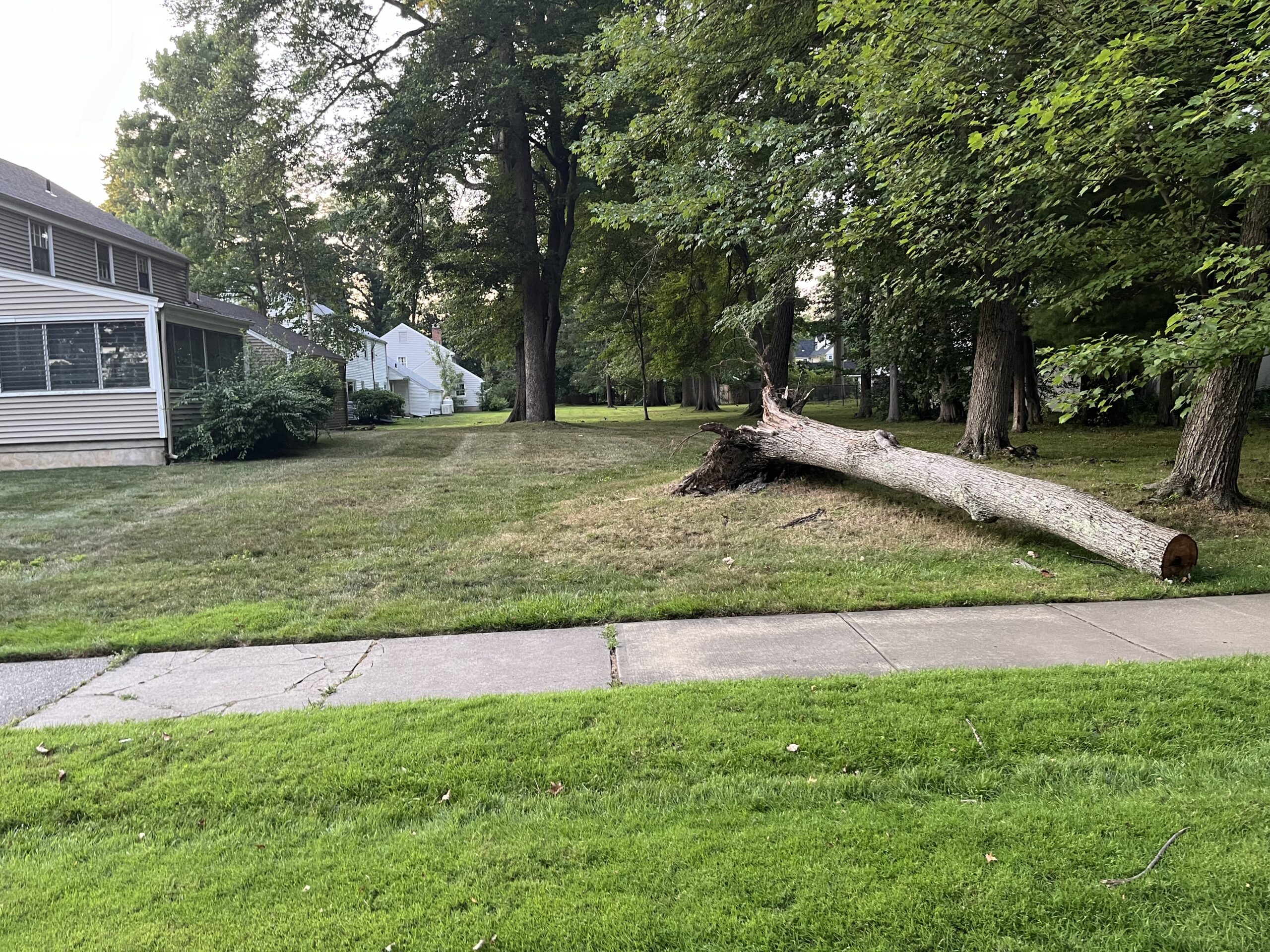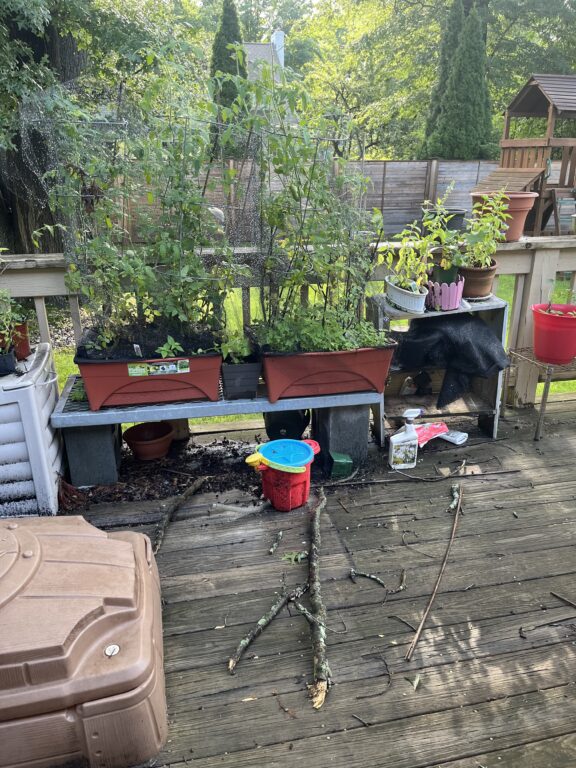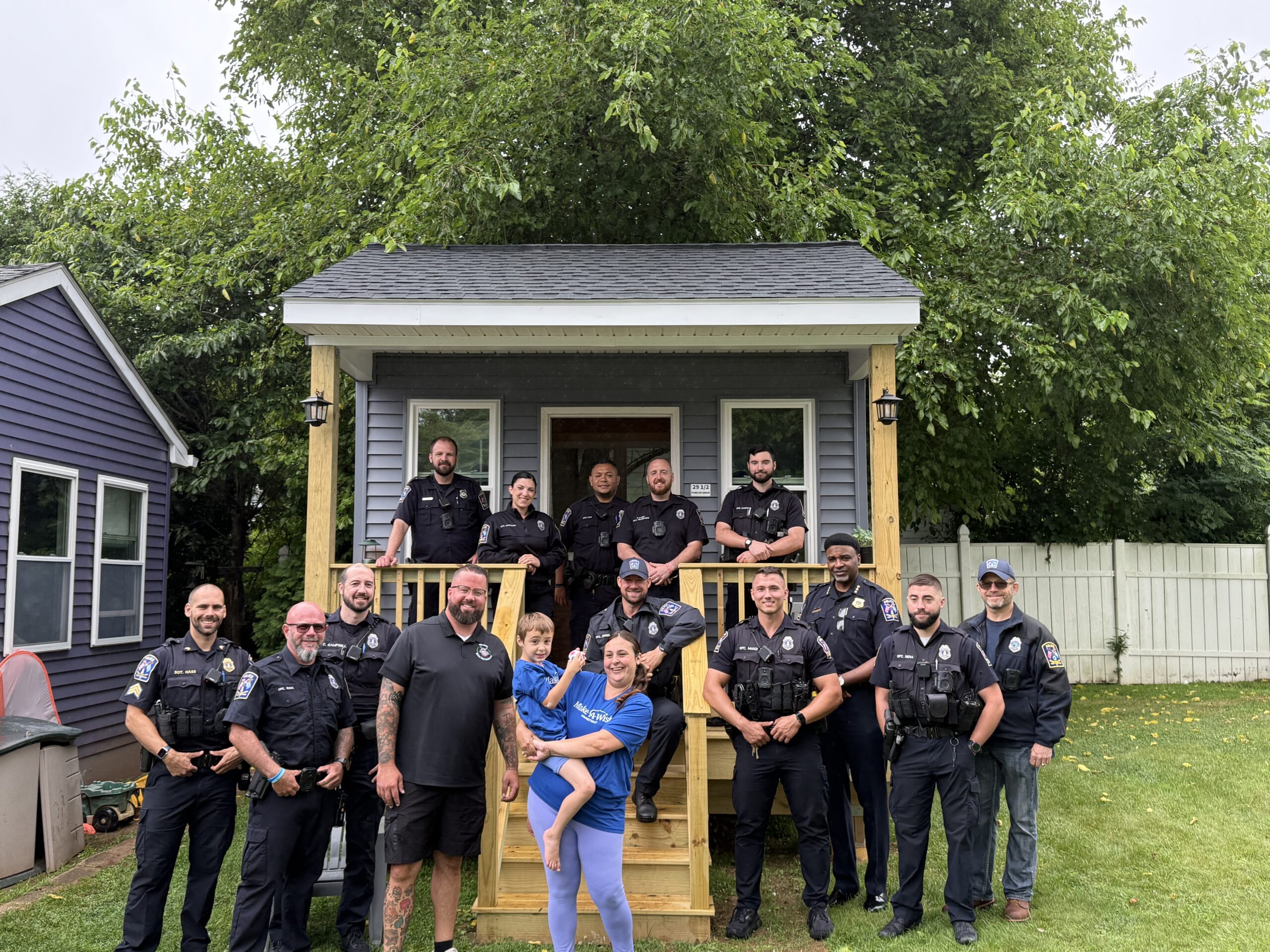Consumer Diary: Emergency Planning

Audio By Carbonatix

A storm recently uprooted this big tree a block from our house, making me realize we must have emergency plans in place for future storms. Photo credit: Harlan Levy
Consumer columnist and West Hartford resident Harlan Levy has more than 20 years of experience writing stories about everyday experiences that anyone could encounter.

Harlan Levy. Courtesy photo
By Harlan Levy
Are you prepared?
I was walking our dog Latke around the block last week when I spotted a tree very recently uprooted and lying on a neighbor’s lawn.
Then two days ago, while my family was sitting around our living room – our daughter, her husband, their 3-year-old daughter, their 3-week-old son, their dog, our dog, my wife, and I – and we heard a loud crash in the midst of a sudden windstorm. Outside on our deck lay a large branch off a tree I had considered chopping down last spring but decided not to, since it looked healthy and I just didn’t want to spend up to $3,000.
I’m changing my mind.
Made me think how unprepared we are for a major storm and all its power outages and physical destruction – like strong storms that have already struck the East Coast within the last few weeks, most likely due to the dangerous, scary, escalating effects of climate change. Anyone remember the Halloween blizzard of 2011? I can’t forget 10 days of no power.

The tree branch that fell from this stand of 3 tree legs hit one of our tomato plants, prompting calls to tree arborists about cutting one of the tree limbs down. Photo credit: Harlan Levy
So I found the following suggestions from USA.gov, the government’s information and services guide, and other online sources – and added some advice from our own experience:
Emergency plan
- Create an evacuation route, including what to do if the family isn’t all together.
- Create an emergency preparedness kit with food, water, medicine, supplies to last a few days, including, extra medicines, medical equipment, and devices for anyone with disabilities.
- Plan for pets – extra food and supplies in the kit.
- Provide many ways to communicate and receive alerts.
- Download the FEMA and Red Cross apps on your smartphone to get real-time storm alerts. Sign up for email alerts from local emergency, police, and fire officials and from the Centers for Disease Control and Prevention.
- Have a battery-operated portable radio.
- Keep copies of important documents (driver’s licenses, Social Security cards, insurance policies) in your emergency kit.
- If you’re pregnant, know where to go for pre-natal care.
Weather related scammers
When a weather emergency hits, the scammers will be right on top of it, ready to take advantage of you when things are bad.
The Federal Trade Commission has some good advice on what to do now:
- Update your insurance policy. Check to make sure your insurance policy is current and find out what is covered and what isn’t.
- Check out contractors before you need one. Ask people you know and trust for recommendations. Then search online for the company’s name with words like “scam” or “complaint.” Look at a variety of sources, including well-known websites that have trustworthy and impartial expert reviews. Check how recent the reviews are, and watch for a burst of reviews over a short period of time. That can sometimes mean the reviews are fake. Check if the reviewer has created an account just to write one review for one product. That review may be fake.
- Get credentials. Find contractors who are licensed and insured by checking with the State Department of Consumer Protection. Ask the contractor for ID, proof of insurance, and references.Research online sellers before you buy. When you need materials to prepare for or recover from a weather emergency, ads that promise great deals from companies you know and trust might seem appealing. But unusually low prices are a sign of a scam. If you’re not sure the ad is real, go to the company’s website using a page you know is real.
- How to pay. If a contractor asks you to pay upfront, and insists you pay in ways that make it hard to get your money back, or insists you pay by cash, gift cards, wire transfer, payment apps, or cryptocurrencies, that’s a scammer.
- Get a contract and all promises in writing. And, if you can, pay by credit card – after the work is done.
Now the question is: Will I follow my own advice?

The tree branch that fell from this stand of 3 tree legs hit one of our tomato plants, prompting calls to tree arborists about cutting one of the tree limbs down. Photo credit: Harlan Levy
NOTE: If you have a consumer problem, contact me at [email protected] (“Consumer” in subject line), and, with the power of the press, maybe I can help.
Like what you see here? Click here to subscribe to We-Ha’s newsletter so you’ll always be in the know about what’s happening in West Hartford! Click the blue button below to become a supporter of We-Ha.com and our efforts to continue producing quality journalism.



